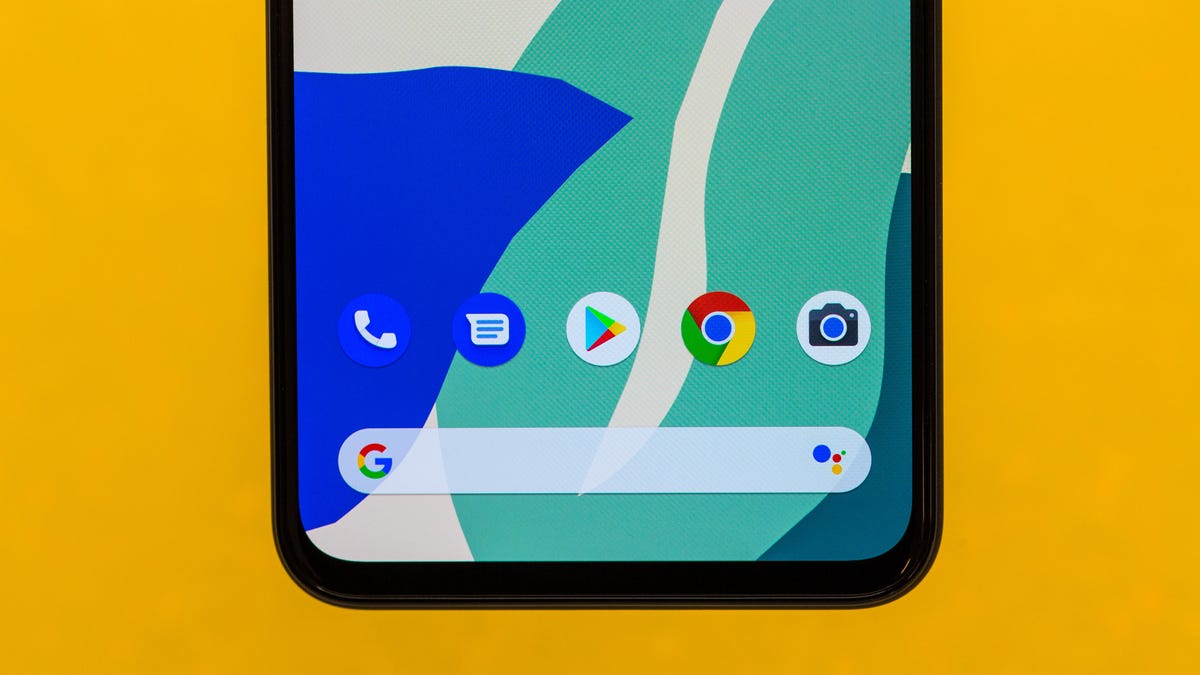Google's 5G Pixel 4 is a no-show at hardware event
The tech giant is mum on plans for its first 5G smartphone.

The Pixel 4 is Google's latest smartphone. But it doesn't support 5G.
Google has packed a lot of new features into its latest smartphones, but superfast 5G connectivity isn't one of them. On Tuesday at an event in New York City, the company took the wraps off its Pixel 4 and Pixel 4 XL, the latest versions of its Google-branded phones. The new gadgets come with a slew of goodies, such as face unlock, new gesture controls and an upgraded camera. But Google didn't announce a version that'll connect to a 5G mobile network.
5G is the next (fifth) generation of cellular technology, which promises to offer network speeds 10 to 100 times faster than existing 4G LTE cellular connections. Speeds this fast would, for example, let you download an entire season's worth of Stranger Things in seconds.
Rumors about a 5G version of the Pixel 4 had been swirling around for weeks. The fact that Google chose not to announce a 5G version Tuesday comes at a time when consumers are being bombarded with 5G marketing hype from major wireless carriers, including AT&T, Verizon, Sprint and T-Mobile. Major handset makers have also been touting their own 5G devices. Samsung, LG, Motorola and Chinese phone-maker OnePlus have already announced 5G handsets. Samsung says it's already sold 2 million 5G phones.
Though companies like Samsung, LG and OnePlus have embraced 5G, it's notable that Apple didn't include the technology in its latest iPhone 11 or 11 Pro phones. That makes Apple and Google the only major handset makers without a 5G phone in 2019.
Does it even matter?
There's little doubt 5G will become the new standard for data speeds. Chipmaker Qualcomm has predicted that all premium phones will support 5G next year. But what about this year?
The marketing buzz around 5G is only expected to intensify in the coming months. But the truth is it's going to take some time before consumers will really be able to take advantage of 5G.
The CNET Reviews team has tested 5G networks all over the world, and even in cities that've already gotten 5G service, coverage is spotty and performance can vary widely. With this in mind, most consumers interested in the new Pixel 4 won't be missing out on much if they decide not to wait for the 5G version. As CNET's Jessica Dolcourt explains in her opinion piece about the iPhone 11's lack of 5G, most people won't miss it.
Google and Apple aren't likely to be at a big disadvantage, especially when you consider that 5G handsets are more expensive, and some carriers are charging a premium for access to the 5G service. The truth is that 4G LTE service still has a lot of life left. In fact, competitors like Samsung are offering two different versions of their products. Samsung offers its Galaxy S10 Plus (which is 4G) and the Galaxy S10 5G.

